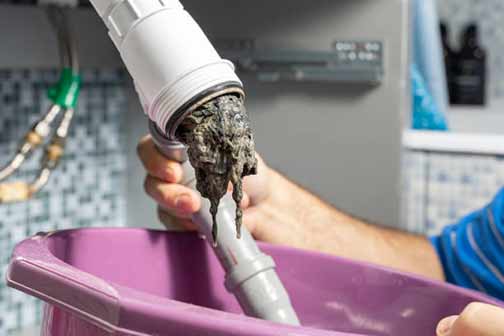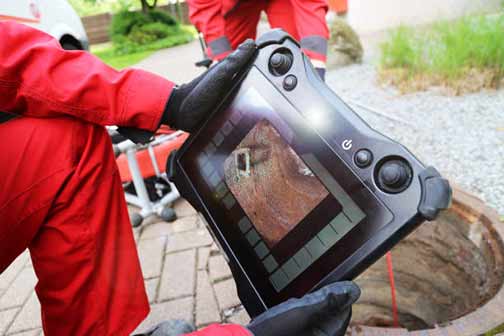
Minor clogs in your plumbing system can often seem like a small inconvenience, but they can be indicative of larger issues within your sewer lines. These clogs typically occur due to the buildup of debris such as hair, grease, soap scum, and food particles in your drains. Over time, these materials accumulate and restrict the flow of water, leading to slow drainage and standing water in sinks, tubs, and showers.
It’s essential to recognize the early signs of minor clogs to address them promptly. Common symptoms include gurgling sounds from drains, unpleasant odors, and water backing up in fixtures. Understanding these warning signs allows homeowners to take immediate action and prevent the situation from worsening.
The Escalation from Minor Clogs to Major Plumbing Issues
When minor clogs are left unattended, they can escalate into significant plumbing issues. The buildup of debris continues to grow, leading to more severe blockages that can affect the entire sewer line. As the blockage worsens, it can cause increased pressure within the pipes, potentially leading to leaks, cracks, or even bursts.
Additionally, the stagnation of water due to severe clogs creates an ideal environment for the growth of harmful bacteria and mold. This not only poses health risks to the household but also results in unpleasant odors permeating the living spaces. The longer the clog is ignored, the more extensive and costly the damage becomes.
Risks of Ignoring Minor Clogs in Your Plumbing System
Ignoring minor clogs can lead to several risks that impact both the functionality of your plumbing system and the health of your household. One of the primary risks is the potential for water damage. As clogs worsen, they can cause water to back up and overflow from fixtures, leading to water damage in floors, walls, and ceilings. This can result in costly repairs and the need for extensive restoration work.
Another significant risk is the potential for sewer line damage. Persistent clogs increase the pressure within the pipes, which can cause them to weaken and eventually fail. A damaged sewer line can lead to sewage backups, which are hazardous and require immediate attention. Sewage backups can contaminate your home with harmful pathogens, posing serious health risks to your family.
Cost Implications of Sewer Line Replacements
The cost implications of sewer line replacements can be substantial. Replacing a sewer line is a complex and labor-intensive process that often involves excavation, removal of the old line, and installation of a new one. The costs can vary depending on several factors, including the length of the sewer line, the depth of the pipes, and the type of materials used.
On average, homeowners can expect to spend several thousand dollars on sewer line replacements. In addition to the direct costs of the replacement, there are also indirect costs to consider, such as the potential for landscaping repairs and the inconvenience of having your property disrupted during the replacement process. It’s clear that addressing minor clogs early on can help avoid these significant expenses.

Preventive Maintenance to Avoid Clogs in Your Plumbing System
Preventive maintenance is key to avoiding clogs and ensuring the longevity of your plumbing system. Regularly cleaning and maintaining your drains can help prevent the buildup of debris and reduce the risk of clogs. Simple practices such as using drain strainers to catch hair and food particles, avoiding pouring grease down the drain, and periodically flushing drains with hot water can make a significant difference.
In addition to these routine maintenance practices, it’s also beneficial to schedule professional sewer camera inspections. A licensed plumber can perform thorough inspections of your sewer system, identify potential issues, and provide recommendations for preventive measures. By staying proactive with maintenance, you can avoid the hassle and expense of dealing with major clogs and sewer line replacements.
When to Call a Professional Plumber for Minor Clogs
Knowing when to call a professional plumber is crucial in preventing minor clogs from escalating into major plumbing disasters. While some minor clogs can be resolved with DIY methods, there are situations where professional intervention is necessary. If you experience persistent clogs that do not respond to standard unclogging methods, it’s time to call a plumber.
Other signs that indicate the need for professional assistance include multiple clogged fixtures, slow drainage throughout the house, and sewage odors. A professional plumber has the expertise and specialized equipment to diagnose and resolve complex plumbing issues. They can also provide valuable advice on maintaining your plumbing system and preventing future clogs.
Conclusion: Preventing Minor Clogs from Becoming Major Hassles
From minor clogs to major plumbing issues, the importance of addressing clogs promptly cannot be overstated. Ignoring minor clogs can lead to significant risks, including water damage, sewer line damage, and costly replacements. By understanding the early signs of clogs, practicing preventive maintenance, and knowing when to call a professional plumber, homeowners can protect their plumbing systems and avoid the hassle and expense of major repairs.
In conclusion, taking proactive steps to maintain your plumbing system and address clogs early on is essential for the health and functionality of your home. With proper care and attention, you can prevent minor clogs from turning into major hassles and ensure the longevity of your sewer lines.

